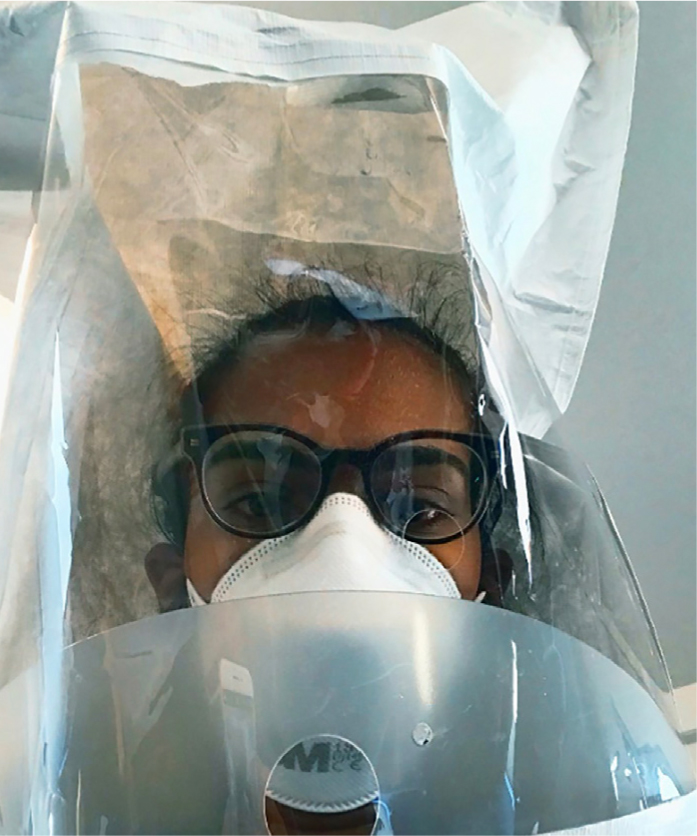Article
The roles of the DCT in hospital during COVID-19
We are Oral and Maxillofacial (OMFS) Dental Core Trainees who proudly volunteered to work on the COVID-19 medical wards. Having worked over 7 months in OMFS and in general dental practice the year prior, we had already embarked upon a steep learning curve kissing crown preps goodbye and trading it in for dealing with head and neck cancer patients. Being entrusted with a horcrux in the form of a bleep meant that we were summoned at any hour for all manner of issue, be it trauma or infections. Seeing gross facial swellings and not panicking was the new norm and assessing new imaging, such as facial CTs and OM views, on top of the standard OPT was now in our armamentarium. No laceration was any match for our suturing skills.
As we were settling into life as a DCT, our job role dramatically changed by April 2020 and we were redeployed to carry out the role similar to that of a Junior Doctor on the medical wards (Figure 1). Happy quickly to adapt as much as possible, we did what we could to support the demand in our new environment. Like us, many other individuals were required to work outside of their specialist roles due to the high demand.

Although we were able to navigate our way through drug charts, discharge letters and imaging, suddenly we were presented with chest x-rays, troponin-Ts and ECGs. Given our lack of true medical experience, we did our best to understand each patient's medical history and the implications of their treatments and investigations. With the help of fellow junior doctors and Google, we pulled through.
A typical day included a 7am start preparing notes for a Consultant-led ward-round, completing tasks directed by the Doctors throughout the day, plus difficult conversations with patients' families, bearing the sad news that their relative was approaching end of life care. These roles, although far from within our comfort zone, were hugely supported by the team around us, making the job more manageable.
The ward shifts unfortunately exposed us to some sad home-truths, and we often left feeling overwhelmed with emotions. Seeing first-hand the cruel reality of COVID-19 and its ability to take lives mercilessly, the inevitable loneliness and isolation of patients being away from their loved ones, and consequently the anxiety of families and friends at home, was heart-breaking.
Many ward patients were for non-escalation and obtained ‘Do not resuscitate’ forms. We found this hugely difficult, having to accept deterioration and seeing many patients' end-of-life journeys. Our breaking bad news changed from saying ‘unfortunately we cannot save the tooth’ to telling families that their loved ones are no longer suitable to be actively treated, and making them comfortable in their final moments would now be more respectful and appropriate. Discussions we would not have dreamed of having before the crisis. Albeit brief, being a Dentist on a medical ward put daily treatments into perspective. A tooth, no matter how valuable, is not as painful to lose as a life.
Looking back, it has been an unforgettable experience which has enlightened us in many ways and opened our eyes to the harsh effects of the COVID-19 pandemic on the public. It was inspiring to see the medical team work together and be so positive during this challenging time. The staff have shown absolute resilience and quality patient care, and we are grateful that we were given the opportunity to work alongside them as part of their team. In times of emergency, it is necessary to utilize all means possible to survive and we genuinely do believe that, as dentally trained healthcare professionals, we were able to stand on our own two feet and be useful to the workforce during a desperate time.
